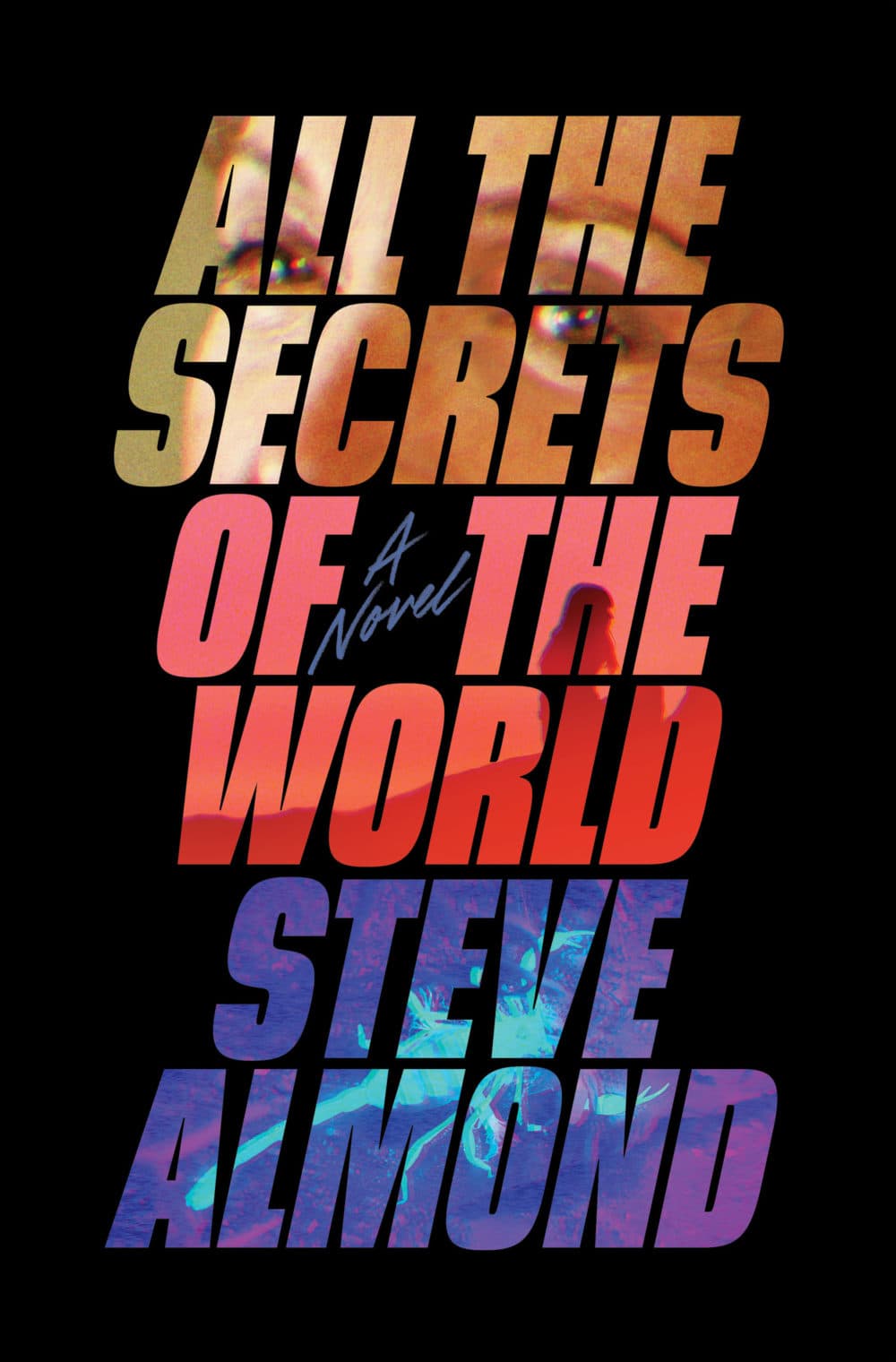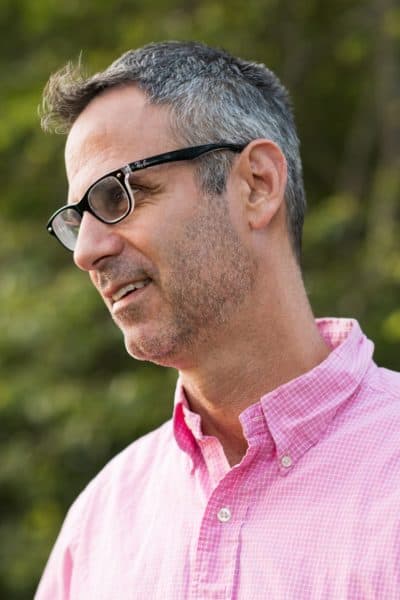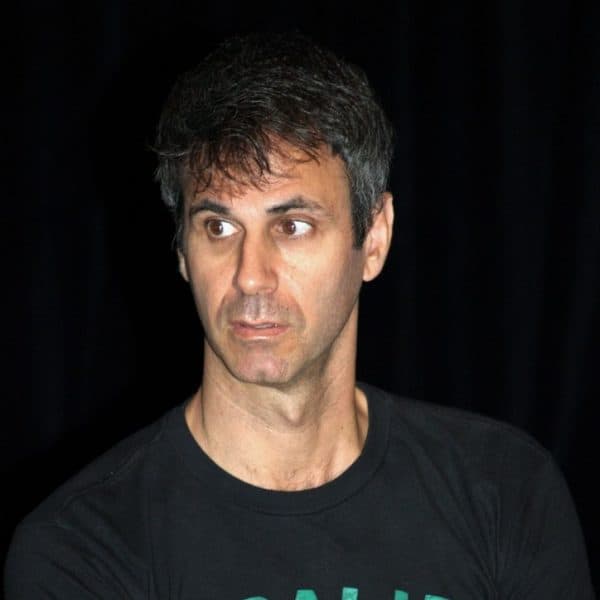Advertisement
5 Questions
'All the Secrets of the World': 5 questions with Steve Almond

Editors’ note: Long-time readers of Cognoscenti know Steve Almond for his incisive commentary — most recently about Donald Trump and the Republican party — and for his empathetic advice, a la Dear Sugar. But this spring, Steve is out with his first full-length work of fiction. As you’ll read below, “All The Secrets of the World” has been in the works for about 30 years (and the book has already been optioned for the silver screen.) Steve is on book tour in May, in conversation with the likes of Cheryl Strayed, and we were happy to ask him a few questions about writing fiction, channeling former First Lady Nancy Regan (who looms large in the novel) and what it means to write a “social novel."
We read that you've been working "All The Secrets of the World" for three decades. What was your motivation to write this novel, and what do you hope readers glean from it?
The stories in “Secrets” have definitely been rolling around my subconscious for 30 years. But for most of that time, I was actually working on a bunch of failed novels. They failed, weirdly, because I was too worried about what readers would think. Would they think I was smart? Would they think I was literary? Those questions are inevitable. But they’re not very interesting. And they resulted in books that weren’t very interesting.
This time around, my motivation was purely curiosity. I wanted to see what was going to happen to Lorena, my heroine. She’s this remarkably intelligent, ambitious young woman who also happens to be terribly vulnerable. My job was to see her into her appointed danger, and to see if she would survive what she endures.
You've categorized "All The Secrets of the World" as a social novel. Can you tell us what you mean by that? How did you arrive at that form?
A social novel focuses on the fate of individuals trapped in larger systems of power. That sounds kind of scary and academic but most of the books Charles Dickens wrote were social novels. “The Grapes of Wrath,” “The Invisible Man,” “Their Eyes Were Watching God”— all social novels. The point is to dramatize lives that too often go unseen.
This time around, my motivation was purely curiosity. I wanted to see what was going to happen to Lorena, my heroine.
I didn’t sit down at the keyboard and say, “Hey, I think I’ll write a social novel today!” Lorena simply came to me, fully formed. She was a young woman who yearned to be seen, recognized, desired. And yet, for her, becoming visible means endangering her family, who are all undocumented.
The novel centers on female characters. What was it like to write characters who are women? And how did you channel the inner monologue of former First Lady Nancy Reagan?
If you’d told me a decade ago that I’d write a novel starring Nancy Reagan, I would have laughed for a week. For years, I just wrote her off as this Gucci-obsessed Marie Antoinette. But as I wrote more deeply into her character, she became more complex. Yes, she’s a monstrously naïve person. Yes, her actions do permanent damage to Lorena and her family in the novel. At the same time, she’s an adoring wife who sees her husband get shot. (The assassination attempt on Ronald Reagan is a vital event in the book.) Because of this, she doubles down on her belief in astrology. That’s the part of Nancy that I totally identify with. We all want to keep our beloveds safe. And we’ll buy into whatever belief system reassures us.

For me, the central mission of the book was to honor the complexity of all the characters. I didn’t want to flatten any of them out into a victim or a villain. That’s too easy. And frankly, that binary mindset is what’s tearing this country apart: the fact that we can’t imagine our way into the minds and hearts of other people. The fact that we’ve let wrath overrun our mercy.
I say all this as a white dude born into insane privilege. There’s nothing I can do to change that. It’s a lottery I was destined to win before I was even born — dumb luck in the purest sense. The least I can do is to cop to that and pay some attention to the struggle of those who weren’t born so lucky. That process began with my mother, who was brilliant and powerful but who suffered profoundly as the only woman in our family.
I’ve also spent the past two decades in spaces that are predominantly female. My writing classes are like that, as was Dear Sugars podcast I did with Cheryl Strayed, as is my own household. I’ve spent a lot of time trying to understand how women navigate in a society that is (still) almost entirely controlled by patriarchal thought. Many of my short stories are written from the perspective of women. And I was drawn to Lorena, in part, because she’s continually manipulated, disregarded, and gas-lit by the men around her. She has to figure out how to persevere, how to navigate a world designed to marginalize her.
I have no idea whether I honored her experience. That’s for the reader to decide. I just know that once she showed up in my head, I had to tell her story.
You're known by Cog's readers for your sharp commentaries, often about politics. But you also write non-fiction books, and for years you dispensed radically empathetic advice on the "Dear Sugars" podcast. How do these different kinds of work relate to and/or fuel each other?
I always tell students that the key to writing is simply to be honest about the stuff that matters to you most deeply. That sounds simplistic, but it’s what I look for in a writer: that sense of urgency, candor, curiosity. This has taken different forms in my career, but they’re all related. The radical empathy I expressed as the host Dear Sugars is the same radical empathy I applied to the characters in “All the Secrets of the World.” The guy lamenting the moral degradations of Trump regime for Cognoscenti is the same guy writing a novel that explores how our country has criminalized the American dream for Central American immigrants.
When I love a writer, it’s because I trust them. I want to spend time with their brain, their heart, their sensibility.
Just the modes are different. For Cognoscenti, I’m writing rhetoric, arguing with a world I see as broken. In the novel, the point isn’t to rant at the reader but to tell them a story that leads them deeper into their own moral confusions.
When I love a writer, it’s because I trust them. I want to spend time with their brain, their heart, their sensibility. I come think of them, to paraphrase Charlotte’s Web, as a “wise, true friend.”
How does it feel to have a story that's been yours — and yours alone — for 30 years, suddenly out in the world?
Fantastic. So much of writing is about absorbing rejection, dealing with failure, outlasting your doubt. I spent decades beating myself up for not being able to produce a novel. But the truth is, I didn’t have a story worth sharing with the world. Now I do. Without knowing it, I’d been waiting for “All the Secrets of the World” to come to me. The moment the muse brought Lorena into my life, I knew how much I loved her, and how much I wanted to tell her story. To be able to share that with readers is a massive relief, a profound honor, and a real joy.
